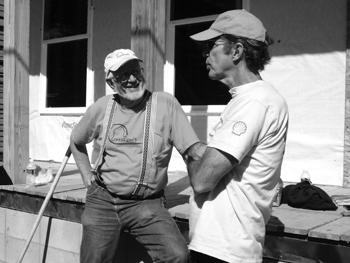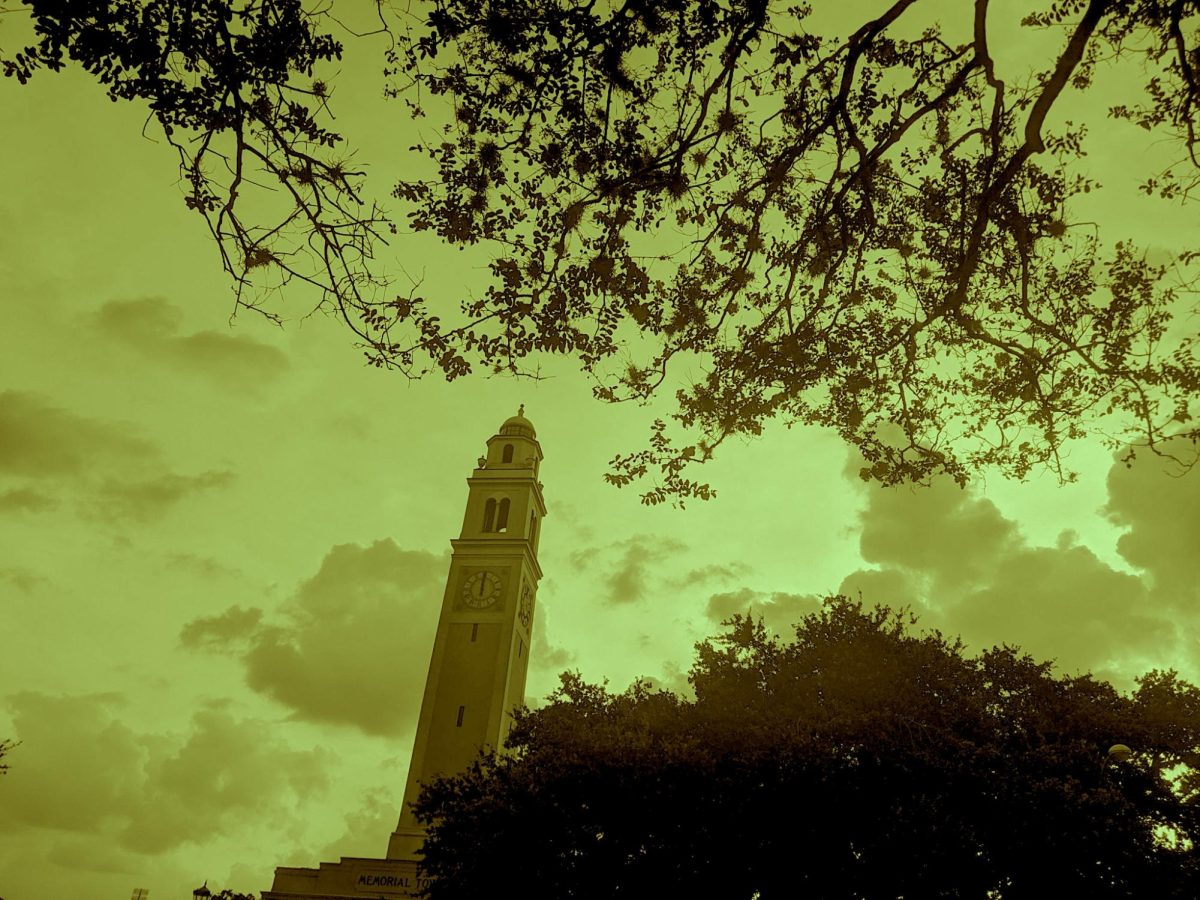Megan Miclette, English sophomore, is enveloped by two disasters. Miclette spent Saturday volunteering at the Honors College Freshman Service Project in New Orleans and St. Bernard Parish, areas still recovering from the aftermath of Hurricane Katrina, which hit in August 2005. Nearly 2,000 miles away, her family and friends face the fury of wildfires as nearly 800 square miles of Southern California burn near her hometown of San Diego. The California Department of Forestry and Fire Protection’s Web site reported that, as of Sunday, seven wildfires still raged in San Diego, San Bernardino, Los Angeles and Orange counties. “I feel so horrible for all of the people,” Miclette said. “My friend just lost her house, and one of my other friends has evacuated.” While Miclette was not in Louisiana during Katrina’s aftermath, Jed Horne was. Then the metro editor of The Times-Picayune, Horne has since authored “Breach of Faith,” the University’s Summer Reading Program book. He said the wildfires are incomparable to Katrina. “What’s going on in California is miniscule by comparison to what went on here,” Horne said. “If they lost 1,500 houses, that’s 1 percent of the housing we lost in New Orleans alone, and of course you had huge losses elsewhere in the state and in Mississippi.” Even the Federal Emergency Management Agency said the situations are not comparable. “There are significant differences in the Katrina and Rita hurricane events and the wildfire events going on now in California,” said Mary Margaret Walker, FEMA spokesperson. “The hurricanes of 2005 were the most catastrophic events this country has had to deal with in modern times, if not forever. The size and scope were incredibly different.” Only 14 deaths have been reported in the wildfires, as opposed to the 1,700 lives claimed by Katrina. Still, Horne and Walker said FEMA and other disaster management entities learned from some of the mistakes in the response to Katrina and applied those lessons in responding to the wildfires. FEMA is under new leadership. Director David Paulison replaced the embattled Michael Brown after Brown resigned in September 2005. Paulison has more than 30 years of experience as a firefighter and served as the director of the U.S. Fire Administration during President Bush’s first administration. The evacuation aspect of disaster management also went more smoothly in California, though Horne said the evacuation for Katrina took three to four times what was required in California’s evacuation. Denise Banker, media relations leader for the California Joint Information Center, said evacuations began almost immediately after fires broke out early Oct. 22. Karen Brack, head of the University Alumni Chapter in San Diego, said officials made “reverse 911 calls,” informing residents who were in danger areas. Banker said 41 shelters were opened statewide. Some residents evacuated to Qualcomm Stadium, home of the NFL’s San Diego Chargers. The facility did not face the same perils as the New Orleans Superdome during Katrina. The shelter at Qualcomm was closed within five days, and the evacuees were accommodated elsewhere. Horne said the most obvious difference in the federal response to the two disasters is the prominence Bush has played. He said the president’s administration has tried harder to be physically present at the disaster site. “The Bush administration has busied itself to get out there much more quickly, to grab the photo ops, to put the president in front of a microphone on the ground in California so as to avoid the stigma that attached to him after he simply flew over Louisiana and was seen peeking out of the window of an airplane at 30,000 feet en route from a vacation back to the White House,” Horne said. “They clearly didn’t want to recreate that kind of impression of aloofness and lack of compassion.” And yet, Bush managed to take a shot at the leadership of Louisiana during Katrina in a press conference Oct. 25. “It makes a significant difference when you have somebody in the statehouse willing to take the lead,” Bush told reporters, referring to California Gov. Arnold Schwarzenegger’s involvement in recovery efforts. Louisiana Gov. Kathleen Blanco and governor-elect Bobby Jindal did not appreciate Bush’s comments. “I think it’s completely inappropriate for anyone to look backwards now in time,” Jindal told WWL TV. “I think California is actually benefitting from the lessons learned after Louisiana’s awful hurricane season in 2005. I think you’ve seen a more proactive FEMA, a more proactive federal response in California.”
—-Contact Parker Wishik at [email protected]
Katrina provides lessons for Calif. wildfire management
October 28, 2007

“Breach of Faith” author Jed Horne chats with CrossRoads Mission volunteer Chuck McCoy on Saturday in New Orleans. The Honors College sent volunteers to New Orleans and St. Bernard on Saturday to help with Hurricane Katrina recovery efforts.





